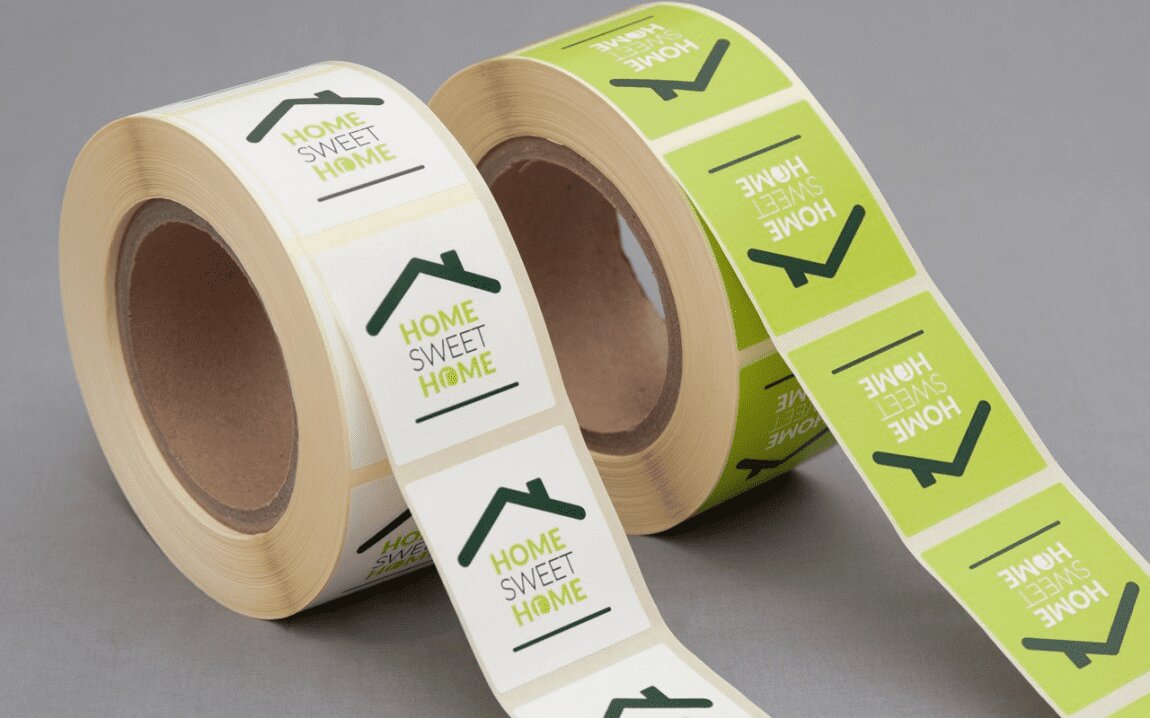When it comes to retail, first impressions are significant. The appearance of your product on the shelf can significantly influence a customer’s decision to buy. One effective method to create a lasting impression is through custom labels. Custom labels not only help your product stand out from the competition but also convey your brand’s message clearly and build customer loyalty.
By investing in high-quality custom labels, you can enhance your product’s appeal, attract more customers, and encourage repeat purchases.

What is The Importance of Custom Labels in Retail
Custom labels are more than just a way to identify your product. They are a key component of your brand’s identity and can play a significant role in shaping customer perceptions. With custom labels, you can:
- Differentiate your product from the competition
- Communicate your brand’s values and personality
- Create an emotional connection with your customers
- Build brand recognition and loyalty
Private-label brands have been gaining market share in the U.S., rising from 17.7% in 2019 to close to 19% by 2023. This growth underscores the increasing consumer acceptance and trust in private-label products, often distinguished by their unique labeling. An appealing custom label not only grabs attention but also communicates the product’s quality and the brand’s values.
How Custom Labels Make a Difference
Custom labels play a vital role in marketing and product presentation by making products instantly recognizable and fostering brand loyalty. They help differentiate products and communicate key information to consumers.
Here are the primary ways custom labels impact sales and brand growth.
Brand Identity and Recognition
Custom labels are instrumental in establishing and reinforcing brand identity. They incorporate brand colors, logos, and unique design elements that make a product instantly recognizable. Consistent and distinctive labeling helps build brand loyalty and trust among consumers.
Enhanced Product Appeal
A well-designed custom label enhances a product’s visual appeal, making it stand out on crowded shelves. High-quality labels with vibrant colors and premium finishes give products a polished, professional look, increasing their attractiveness to potential buyers.
Communication of Key Information
Custom labels provide essential information about the product, such as ingredients, usage instructions, and compliance certifications. Clear and informative labeling helps consumers make informed purchasing decisions and fosters transparency.
Differentiation from Competitors
In a market saturated with similar products, custom labels offer a means of differentiation. Unique designs, shapes, and finishes can set a product apart, attracting consumers seeking something distinctive.
Targeted Marketing
Custom labels can be customized to appeal to specific demographics or market segments. For instance, eco-friendly designs may attract environmentally conscious consumers, while luxurious finishes might appeal to premium market segments.
How to Create Effective Custom Labels
Creating effective custom labels involves several key steps. Understand your audience by considering their preferences, interests, and needs; for example, a health-conscious audience will appreciate a clean and natural look. Keep it simple by focusing on the most important information and using clear, easy-to-read fonts, as cluttered labels can be overwhelming.
Use high-quality materials to ensure your label looks professional and is durable under different conditions. Test your design by creating samples and gathering feedback to make necessary improvements and ensure a great first impression.
Working with professional printing services like Blue Ribbon Label offer Design and Print for Custom Labels, ensuring that your labels look sharp, vibrant, and professional. They can also provide expert advice on materials, finishes, and printing techniques to make your labels stand out.

What Are the Best Practices for Creating Custom Labels?
Researching your target market helps design labels that resonate with potential customers by understanding their preferences and values, and informing design choices. Consistency in labeling across products reinforces brand identity and ensures a cohesive brand image. Adhering to industry regulations and standards in labeling is essential to avoid legal issues and build consumer trust.
High-quality printing ensures that labels are durable and visually appealing, reflecting the product’s quality. Gathering feedback on label designs and making necessary adjustments can lead to more effective labeling strategies.
What are The Benefits of Custom Labels in Retail
Custom labels offer several benefits for retail businesses, including increased sales through eye-catching and informative designs that attract more customers, ultimately boosting sales. Consistent and unique labeling helps build brand recognition, as customers who recognize your brand are more likely to choose your products over others, leading to increased brand loyalty and repeat business.
A survey by Label Insight reveals that 94% of consumers are likely to be loyal to a brand that offers complete product transparency through detailed labels. Additionally, 72% of consumers read nutritional labels before purchasing food products, highlighting the importance of informative labeling in consumer choices. Furthermore, custom labels provide a competitive advantage in the market; a well-designed label can set your product apart from the competition, making it more appealing to customers.
Conclusion
Custom labels are a key component of any successful retail strategy. By investing in high-quality custom labels, retailers can create a memorable first impression, build brand awareness, and drive business growth. Whether you’re looking to differentiate your product, communicate your brand’s values, or build customer loyalty, custom labels can help you achieve your goals.

